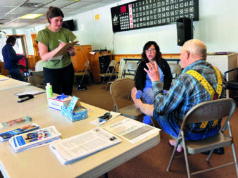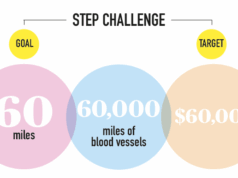
When patients with diabetes are infected with coronavirus, specialized macrophage cells—already primed to develop excessive inflammation in this population—are further transformed into a pathologically inflammatory state by a decrease in the enzyme histone methyltransferase, or SETDB2, this year’s SVS Foundation Resident Research Award-winning paper reveals.
Results to be presented by lead author W. James Melvin, MD, a general surgery resident at the University of Michigan in Ann Arbor, describe a potential mechanism for the increased macrophage-mediated “cytokine storm” in patients with type-2 diabetes in response to COVID-19, suggesting that therapeutic targeting of an interferon-beta (IFNß) mechanism “may decrease pathologic inflammation associated with COVID-19.”
The work—entitled “Coronavirus induces diabetic macrophage-mediated inflammation via IFNß regulation of SETDB2”—emerged out of the University of Michigan lab led by Melvin’s mentor on the investigation, Katherine A. Gallagher, MD. Prior to the pandemic, lab researchers had investigated why people with diabetes experience worsening wound healing in the context of peripheral arterial disease (PAD), discovering it was due in part to epigenetic changes in macrophages in the patients with diabetes.
As the pandemic took hold last year, Melvin and colleagues developed a hypothesis stating some of the same epigenetic enzymes may cause diabetic patients to have worse outcomes in response to COVID-19 infection.
“We infected diabetic mice with coronavirus, and analyzed samples from our COVID ICU [intensive care unit] at Michigan, and then looked at those macrophages and the enzyme in question,” explained Melvin. “We found that it plays a very big role, causing an increase in inflammation, known as the cytokine storm.
“Essentially, the main finding was that when patients with diabetes—who already have macrophages that are primed to develop too much inflammation or pathologic inflammation—get infected with coronavirus, those macrophages are further turned into a pathologically inflammatory state owing to a decrease in the enzyme SETDB2.
“One of the reasons COVID has been difficult for so many patients is that it causes your cells to make less of this interferon, even though it’s what you’re supposed to make in response to the virus. We found that this loss of interferons causes the epigenetic enzyme, SETDB2, to be decreased, which then tells the macrophages to go haywire and release way more inflammation. This is especially true in diabetic patients.”
The research team then attempted to reverse this process, Melvin continued. “We actually treated diabetic macrophages with interferons, the molecule decreased by coronavirus, discovering that, if we treated cells with it, we could actually reverse the inflammation. What that tells us is that—and there are active trials right now where they are looking at patients in the hospital and treating them with interferons—maybe we should really focus those trials especially on our vascular patients that have diabetes.”
Looking ahead, Melvin and colleagues plan to carry out further tests on therapeutics.
“We’re looking to give mice interferons to see if we can make mice do better in response to coronavirus,” he said. “We can then further investigate that pathway, where we can see when we give interferons to mice—either in inhaled or injected form, especially diabetic mice—whether that can make them do better in response to coronavirus. There are also a lot of questions about the timing of administration of the drug and safety, and which specific patients would benefit more or less.”
Melvin, a native of Columbus, Ohio, is currently completing a two-year research fellowship under National Institutes of Health (NIH) funding before returning to complete his general surgery residency, and plans to apply for vascular surgery fellowship on completion.
“I was really drawn to surgery based on being able to help patients and get them through difficult times, difficult problems, and drawn to Michigan due to the opportunities for research, excellent clinical training, and to work with a mentor like Dr. Gallagher,” he said.
“I was originally drawn to vascular surgery as a resident early on because I really loved working with the patient population, dealing with a wide variety of different pathologies all across the body, being able to manage that both surgically and also minimally invasively—I think endovascular techniques are really cool and vascular surgery is always innovating.”
From a research point of view, Melvin described a longtime interest in epigenetics and the immune system, telling Vascular Connections: “I think it’s fascinating how two patients who are maybe twins, and, depending on what kind of life they both live, can have totally different body types, outcomes and diseases,” he said.
“There’s a lot we don’t know about epigenetics, and as we strive in the future to deliver more personalized care, and try to predict which patient would do well with surgery, and which wouldn’t, I have found my experience working with Dr. Gallagher on research like the one that won this award is preparing me to be a surgeon-scientist of the future who can investigate those pathways.”
When: Wednesday, Aug. 18, 8:41 a.m.– 8:51 a.m. William J. von Liebig Forum











